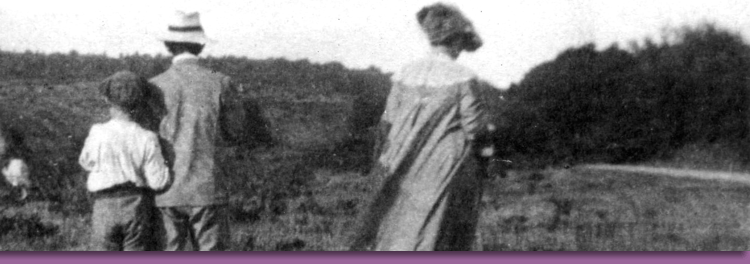|
[PAGE EN CONSTRUCTION - Traduction
à venir... et plus encore...]
La vérité au sujet des danseurs (danseuses) russes...
Une revue de cette pièce fut publiée dans Punch.
Nous la reproduisons ci-dessous (merci, une nouvelle fois, à
Robert Greenham, à qui je dois
tant et tant) :
PUNCH,
Vol. 158.
--------------------------------------------------------------------------------
March 24, 1920.
AT THE PLAY.
"The Truth About The Russian Dancers."
With that uncanny tuition of his Sir James Barrie has, of course,
hit on the precise truth. Russian dancers are not born but made—by
the Maestro, which I take it is (broadly speaking) Italian for
Producer and Presenter.
When Karissima goes on a visit to the stately home of the Veres
the peace of that ancient haunt of the conventionally correct
is queerly broken. Young Lord Vere loses his heart. However, that
might just as easily or more easily have happened if the Gaiety
had been invited. But a dreadful change comes to Uncle Bill—he
buys his clothes ready-made (at La boutique fantasque, for a guess,
or possibly Mr. Mallaby-Deeley's), grows dundrearies and goes
hopelessly off his game at golf.
Karissima, poor dear, can't walk or talk or putt, for that matter,
except with her toes. Bill calls this last cheating, but young
Vere thinks it simply adorable—as do we all. Lady Vere,
his mother, can't get used to being kissed by Karissima, who will
stand upon her lightly with one foot, oddly waving the other meanwhile
in the air. Besides it takes too long and is rather too demonstrative.
And couldn't Karissima dear just try to walk with her soles really
flat on the ground in the solid English county way? Certainly.
Karissima will try, to please Madame, and with painful effort
achieves a half-dozen clumsy steps till unconquerable habit and
Mr. Arnold Bax's allusively witty music lift her on tiptoe again.
And really she is such a darling that the once reluctant dowager
finally consents to the marriage; wedding bells forthwith (within);
a white-haired clergyman, surprised at nothing, as becomes the
very best type of padre, appears; follow corps de ballet bridesmaids;
and Bill gives her away.
Karissima, says Vere to Maestro later in the evening, is depressed.
Because she hasn't a child. They both tremendously want a child.
Maestro, silently showing his watch-dial, would seem to wish to
suggest that they were unreasonably impatient. Karissima also
pleads. Well, he will see what he can do. But there's an awful
penalty. For a new Russian dancer cannot be made unless another
surrenders life. Anyway he fetches his black bag. And Karissima
dances down the main staircase with her babe, who grows apace
and is shortly seen prancing in the garden (on his toes—"Thank
Heaven!" says the Maestro).
And Karissima dies and is brought in on her bier, and dances
(she would!) her own funeral service. Maestro's heart is touched;
he lies down in her stead, and she, dancing on a carpet of thistle-down
shot with stars (I think), and her lord (I am sure), perpetually
exclaiming, "How perfectly topping!"—both achieve
an enviable immortality.
Madame Karsavina is exquisite; she is well supported by Mr. C.M.
Lowne (Hon. Bill), Mr. Herman de Lange (Maestro), Miss G. Sterroll(Dowager),
and Mr. Basil Foster (Lord Vere). And I thought I detected Mr.
Du Maurier's appreciation of the bizarre in his production. But
the triumph is the triumph of the whimsical author. I don't think
he has ever done anything better; more ambitious things, yes,
but nothing so free from flaw.
Isn't it more than possible that just three-score years ago,
on a May day (see Who's Who), some Maestro of Fantasy slipped
into a little house in Kirriemuir, N.B., with a black bag? Wouldn't
that explain the otherwise inexplicable, the unwearying resourcefulness,
the unabashed playfulness of this impenitent youth?
|





